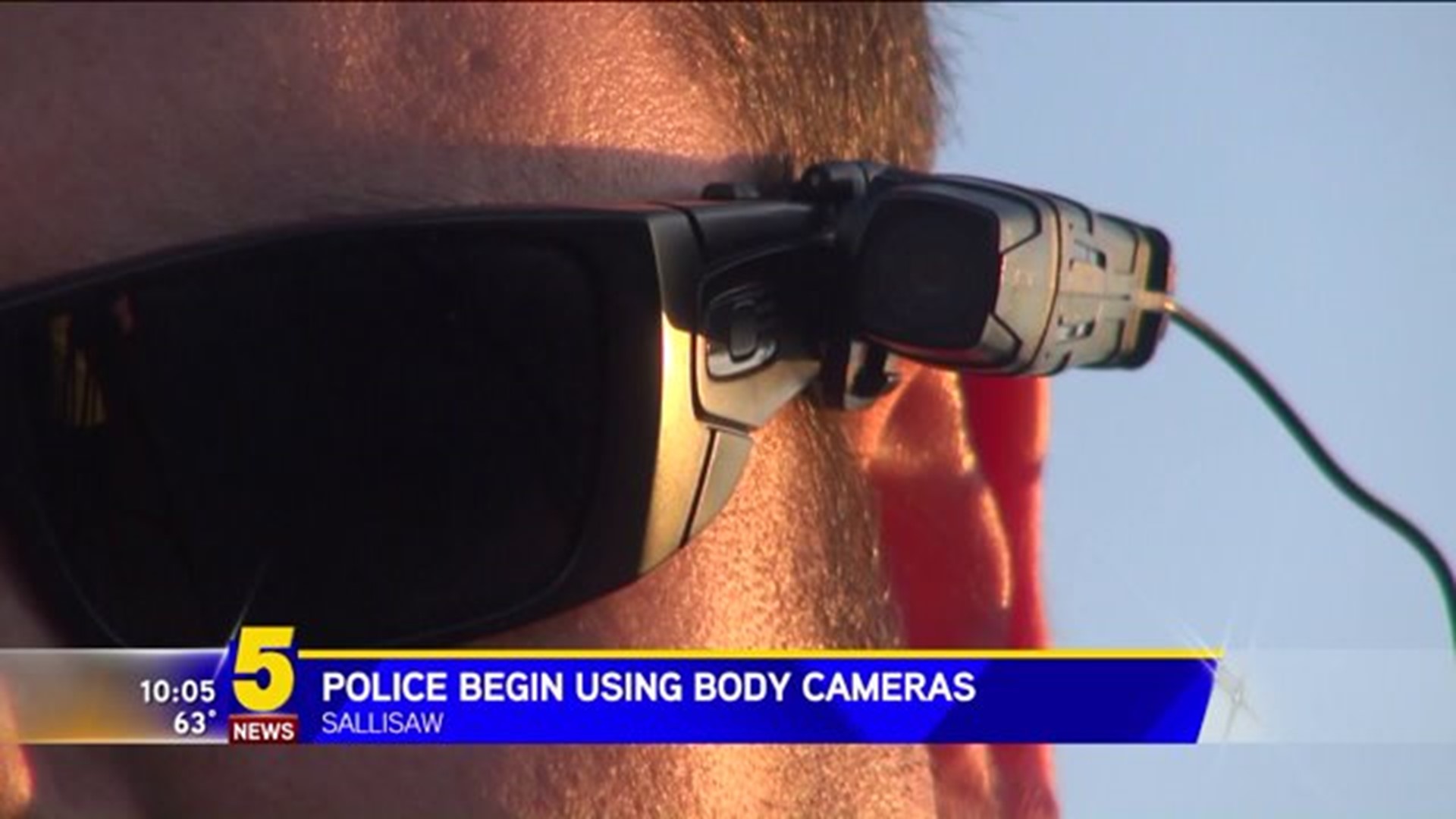SALLISAW (KFSM) -- Patrol officers and detectives with the Sallisaw Police Department are in the training stage of using body cameras.
Chief Terri Franklin said one reason the department made the decision to get body cameras is to show the officer’s perspective of a situation.
“We’re always seeing these video clips from people and their cell phones giving their version, and I wanted the officers at our department to be able to show our side of it, from an officer’s view,” he said.
Officer Mark Rutherford has been with the department for almost nine years, and said while it may take some getting used to, it won't change how he does his job.
“I have nothing to worry about . I’m still going to do my job the best I can, and go from there,” Rutherford said on Wednesday (Nov. 4).
The camera won’t be recording an officer's entire shift . They will begin recording when the officers about to enforce the law. The cameras also pick up audio, so the department can go back and listen to the whole conversation between the officer and whoever they're talking to.
“It’s a very useful for us to use,” Rutherford said. “It shows all aspects of what we do. Nobody can go back and say, 'Well they did this.’"
"We have video proof to show what we did or did not do,” he said.
Franklin said the cameras will make the department more transparent.
"It makes the officers more accountable, it makes the citizens more accountable because they know we're recording them,” Franklin said.
Franklin said the video stays in a system for 90 days, and officers don't have the capability to delete any of it.
The department will use 19 cameras. Each officer is assigned a camera with a serial number, and no one else will use it but the person assigned to it.
According to Oklahoma law, law enforcement agencies must release the video available to the public, under certain circumstances. Agencies are allowed to “redact or obscure specific portions of the recording” from equipment attached to a person.
Some examples of legal reasons for an agency to redact or obscure specific portions of the recording are if the recording depicts the death of a person or a dead body (unless the death was effected by a law enforcement officer), if the recording depicts nudity, or if the recording identifies alleged victims of sex crimes or domestic violence.
To read the law, click here.
Franklin said each recording will be reviewed before it is released to the public or the media.
“If it’s an ongoing case or something that you’re not entitled to, then according to the statute, you won’t be able to get it,” Franklin said.
The body cameras cost $18,000 and were paid for in part by a grant from the district attorney's council and with a drug forfeit fund at the police department.
Franklin said paying for storage of the video will be the next expense for the department.

